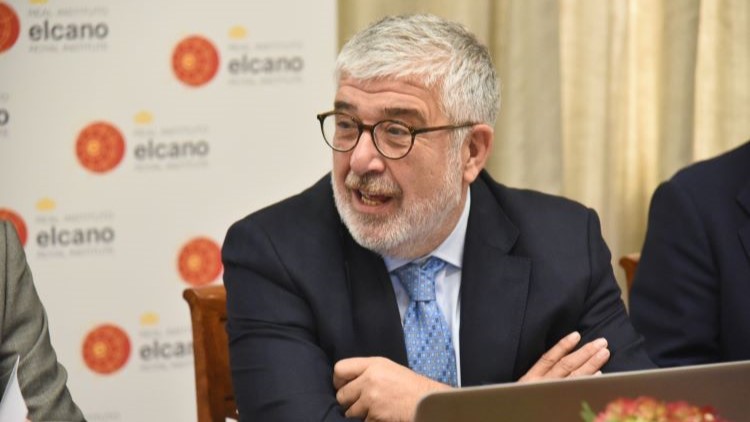Eduardo González
The Carolina Foundation published its 2023-2024 annual report this week Latin America in the interregnum. Politics, economics and international insertion, which carefully analyzes the way in which the Latin American region faces the “morbid phenomena” of “an interregnum stage” between the old international liberal order and “a new configuration” that is still unpredictable.
Among the issues analyzed in the report are the search for greater autonomy in the international sphere, the diversification of ties with other actors, such as the European Union, the deployment of new regional cooperation and integration initiatives, or the return of development policies. in a scenario of environmental crisis and digital transformation.
The Report examines the crises and uncertainties that Latin America is going through “within a global system alternated by geopolitical confrontations and crossed by the crisis of liberal governance”, the lack of “strong” agendas for political and social change, “the opportunities and gaps of the Chinese and US rivalry”, mediation attempts to achieve peace in Ukraine, feminist foreign policy or the ecological transition, among other topics.
Along with this, it focuses on the particular cases of Brazil and Colombia, which allow us to bring the magnifying glass closer to two political processes that have modified the correlations of political-ideological forces in the region.
Latin America and the entire international community face a stage of “interregnum” in which “the old structures of globalization, of the international liberal order, are in question, they are in crisis, but, nevertheless, they have not yet emerged. a clear new configuration of international order,” declared the director of the Carolina Foundation, José Antonio Sanahuja, in a video presenting the report.
At this juncture, the region faces, on the economic level, “a new lost decade for development, with important challenges for the transformation of its economies,” and on the political level, “a new cycle of elections in countries key in the region, in which once again there is enormous citizen disaffection, a crisis of representation and a very marked tendency towards the questioning of the ruling parties and their replacement by new leaderships, in some cases of a populist nature.
Furthermore, the report addresses the “difficult international insertion of the region”, at a time when the president of Brazil, Luiz Inácio Lula da Silva, is trying to “relaunch the processes of cooperation, consultation and regional integration in areas such as Mercosur, the Amazon Cooperation Treaty Organization, the novel Brasilia Consensus or the attempts, until now unsuccessful, to recover the old union of South American nations, UNASUR.”
In this aspect, Sanahuja explains, the report also analyzes the “relaunch of the Community of Latin American and Caribbean States (CELAC), an entity that has led the recovery of political dialogue with the EU in a phase of relaunching the relations of those two regional blocs”, but also reviews the responses that the region has given to the war in Ukraine, where, “in the absence of concertation, we have seen very dissimilar responses between the different countries but also a high degree of coincidence in the United Nations.” United, in voting in the General Assembly and in other bodies.”
Another issue elaborated by the document is “the difficult situation of the region in the field of competition between the US and China, and the discussion on an emerging bipolarity, two economic and political alternatives in the face of which Latin America intends to build greater autonomy in association. with external partners, and in particular with the EU.” According to two of the authors of the report, Eduardo Pastrana Buelvas and Eduardo Velosa, “China has been occupying a predominant place in the region, to the detriment of the US, although Central America, the Caribbean and Mexico remain under the shadow of Washington.”
Renowned specialists from the Ibero-American world have participated in the preparation of the Report: Cecilia Güemes, Eduardo Pastrana Buelvas, Lennys Rivera, Gilberto M. A. Rodrigues, Érika Rodríguez Pinzón, Osvaldo Rosales, Paula Ruiz-Camacho, José Antonio Sanahuja, Pablo Stefanoni, Eduardo Velosa and Francisco J. Verdes-Montenegro. The volume has been edited by José Antonio Sanahuja and Pablo Stefanoni, editor-in-chief of Nueva Sociedad magazine and associate researcher at the Carolina Foundation.






